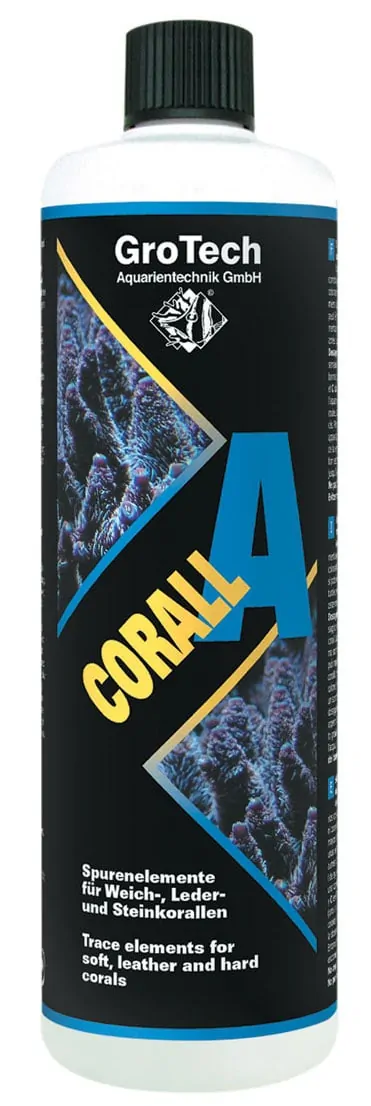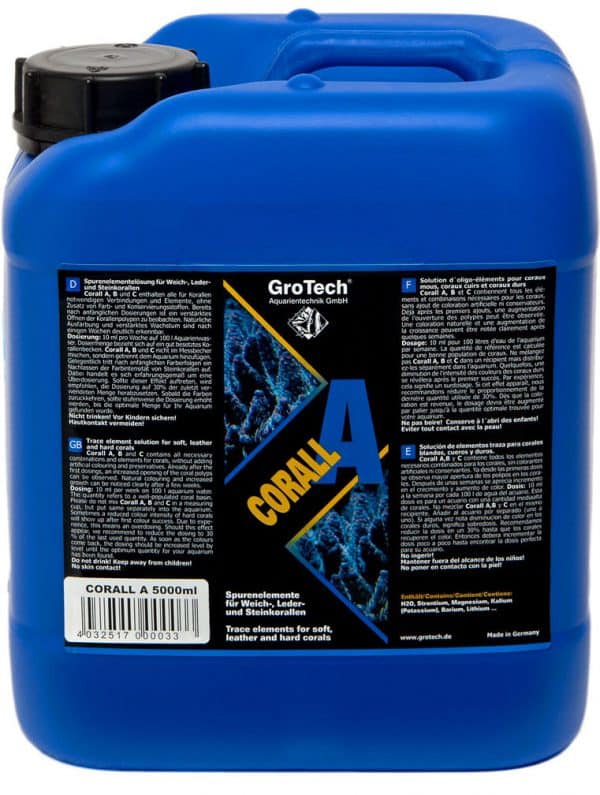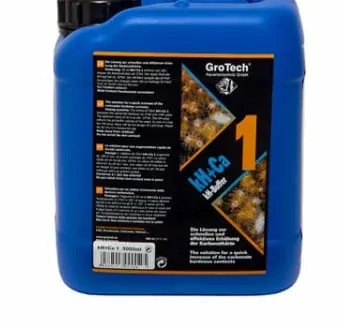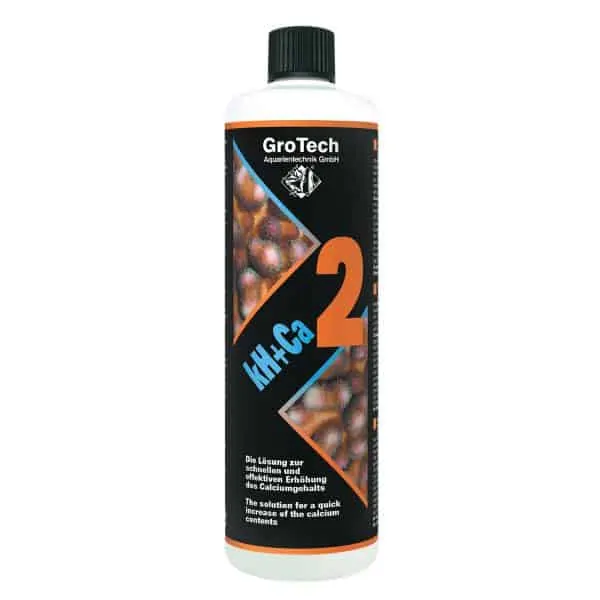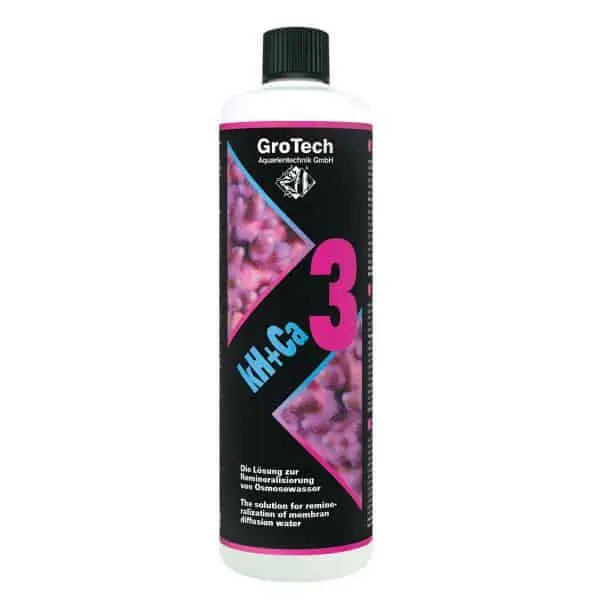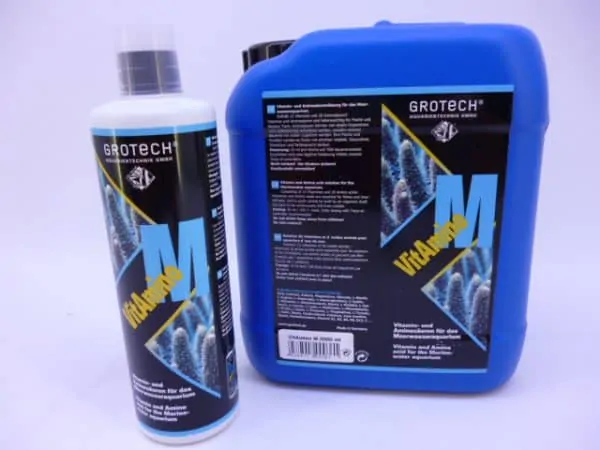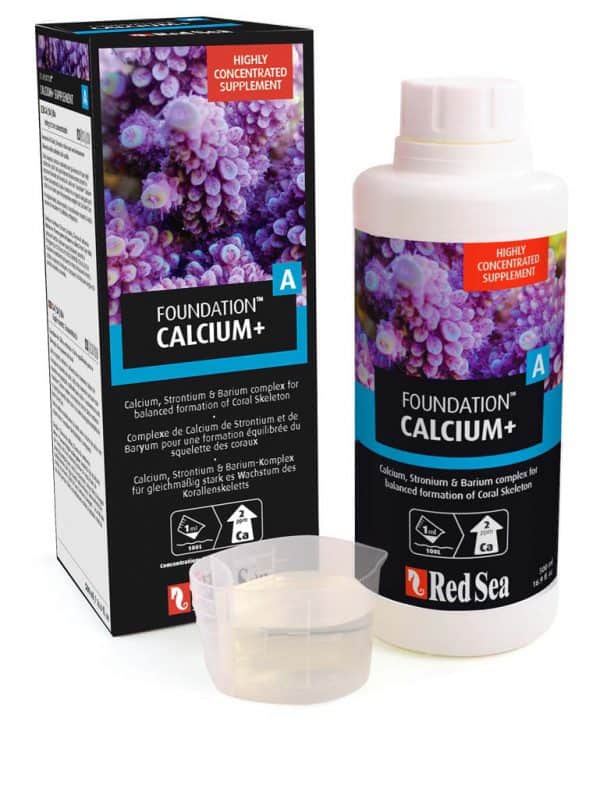Water Additions to bring the water values to the level of many different brands. Think of supplementing Calcium, Magnesium, Kh, Potassium, Amino acids, trace elements etc. in the aquarium water
Read more at the bottom of the page
Additives
Additives
Additives
Additives
Additives
Additives
Additives
Additives
Additives
Additives
Additives
Corals absorb many different substances from the water to live, grow and retain beautiful colors. By adding the shortening that result, care is created for a healthy environment and perfect seawater. A dosing pump is highly recommended. Amino acids are used by every living being on the earth. Corals also use the amino acids.
Using corals in an aquarium Calcium (Ca) - In natural seawater, calcium has a
concentration of around 420 ppm. It is a powerful element for stony corals, creatures and calcareous algae. Bivalve shellfish and corals get it out of the water and use it to build their skeletons. It must be tested regularly, as the animals grow over time, the consumption will increase. Ways to supplement the calcium in your aquarium are: liquid and powder-calcium additives, lime washer or a calcium reactor. A Calcium test is easy in used.
Strontium (Sr) resembles calcium in terms of calcium. Many organisms use strontium in the development of their skeletons. It has been found that the addition thereof added to increase the growth rate in the same hard corals as coral algae. Strontium testing (via a ICP- OES lab of testset) is clear than many of the other elements, so it is important to follow the manufacturer's instructions. Strontium is available in both liquid and powder form and is also supplemented with the use of a calcium reactor.
Carbonate (KH) acts as a carbon source for many of the marine animals and acts as a buffer for the pH of the aquarium water. Alkality is the term used to measure the amount of carbonate in salt water. To maintain the correct pH values in the aquarium, we want to keep this level between 7.5 and 9 dKH. Use a quality buffer in liquid or powder form to maintain this level.
Magnesium (Mg) is, together with the other minerals already mentioned, responsible for the regulation of the pH and the formation of the skeletons of your invertebrates. Although it is used much slower than calcium or strontium, it may be necessary to replenish this mineral in time. It is available in both powder and liquid form.
Trace elements
The following elements are present in natural seawater at much lower concentrations, but are equally important for the health of fish, corals and invertebrates.
Iodine and iodide (i) < / strong> - Iodine is quickly oxidized in the aquarium and must therefore be added daily in very small quantities. It is essential for the health of many soft corals such as Xenia and can also have antibiotic properties in stony coral aquariums, which can also improve their coloring. Iodine is available in liquid form and manufacturer's recommendations must be followed to prevent overdose.
Iron & nbsp; (Fe) - Iron is beneficial for all photosynthetic invertebrates and plants, as it provides extra nutrition to the photosynthetic cells. This results in improved coloring, growth and expansion within these organisms. Iron is available in liquid form and is also included in many of the general products with trace elements.
Fortunately, all of these elements are now available in easy-to-use specimens and tests are now also available for almost all of them. As a result, it is now possible to keep the water chemistry in a saltwater aquarium close to that of a natural reef. Even new hobbyists can achieve great success in a relatively short time by regularly testing the water and adding these elements if necessary.

 Nederlands
Nederlands
